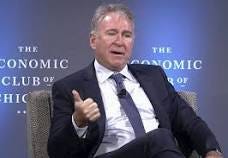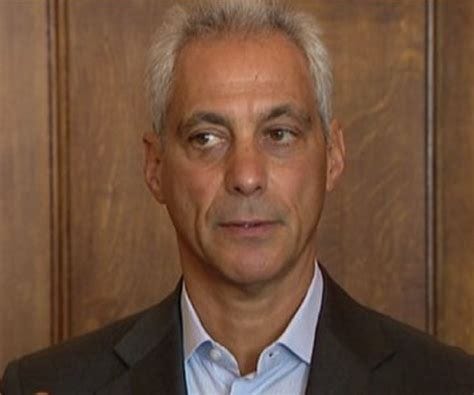Why does the business community scare Mayor Johnson?
It is almost flattering to see that an idea suggested in this space a couple of months ago - that Mayor Brandon Johnson develop an economic SWAT team to deal with the budget deficit and pension crises has taken shape. The unflattering part is the mayor and his administration are only taking the weak half of the idea.
The team Johnson has assembled omits members of the business community. This is the very cohort that has an absolute understanding of the challenges the city is facing to free itself from this strangling death. However, just like with his transition team, Johnson left them on the sidelines.
The transition omission could have been an oversight by a new mayor and an inexperienced, union-focused kitchen cabinet. However, this second time screams that the former school teacher who morphed into a union organizer carries a fear of sitting down with business leaders. It is somewhat understandable. It is apparent Johnson has fallen into the same trap so many elected officials find themselves in; and that is believing they are imbued with a skill set and knowledge base they didn’t have even one day before winning office. That in turn causes these newly elected folk to see themselves as the ultimate problem solvers. Like Johnson, they are reticent to find the necessary help-especially early on.
Unfortunately, the mayor is listening to, and following up on advice provided by those who were instrumental in putting him in office -unions. He definitely should listen to them, but at the same time help them realize that when it comes to government operations, particularly finance, like him, they are babes-in-the-woods. Whatever real or imagined disdain unions have with the business community need to be stuffed deep into a barrel-if Chicago is to rebound and thrive.
In six weeks in office, the mayor has made it a practice to stick his foot in his mouth, and he did not alter that pattern recently when he said his new finance group will “work together to develop a sustainable path forward for the city’s pension funds. “These individuals will work with a broader set of advisers from the financial and advocacy sectors to develop actionable solutions to meet the city’s obligations to retirees, workers and taxpayers.”
How can he not see this tells the world after the decisions he wants has been made he will ask men and women, many of whom lead multi-billion-dollar businesses to co-sign. He is essence calling these business leaders the B-team.
Johnson’s ego is blinding him to the fact that he can only do so much on-the-job training, and needs to pass off some matters to the grown ups in the room. It is only being factual and not critical to note the mayor has no experience with the gargantuan migrant issue, helping craft municipal budgets, being the ultimate decision maker over more than a dozen departments and tens of thousands of employees, as well as engaging/battling with and//or supporting a divisive city council.

Throw in the multi-billion-dollar pension hole the city is wallowing in and it is clear the mayor, who has no financial background or acumen, needs all of the business help he can get. Surely, someone has informed Johnson that in the last two months Chicago has lost the headquarters of three major corporations - Boeing, Caterpillar and Citadel -to Miami.
The Citadel founder, Ken Griffin, who is one of, if not the wealthiest man in Illinois attributed his company’s departure to chronic budget problems that plague the state, noting “There’s no political will to fix it. The taxpayer is going to be stuck with paying that bill” he told Bloomberg News.
Johnson somehow has to be made to understand how the tax revenue generated from the business community shores up so much of what the city can do. The exodus of major businesses even incrementally works to erode the city’s tax base, put a greater burden on the citizenry, and whittles down Chicago’s bond rating making it impossible to sell bonds without promising investors ridiculous returns. In simple English, the greater return, or interest the city has to pay the larger tax bills become.
Johnson also would serve himself well in this job if he were to analyze that former Mayor Rahm Emanuel made a decision 10 years ago-to close 50 Chicago Public Schools buildings- and Chicagoans are still stewing over it. Emmanuel despite that and some other mis-steps was re-elected to a second term.
Lorie Lightfoot succeeded Emanuel in the mayor’s office. She was not re-elected.


The glaring difference in the two administrations was Emanuel was supported by the city’s business leaders.
De Priest Digest suggested in an earlier newsletter that the mayor take a couple of weeks away from city business and look for the right perspective to doing the job. Psychologists recommended that time away from a situation helps one address his or her fears. Maybe the mayor can come back with a plan to get rid of his “business-phobia.”




